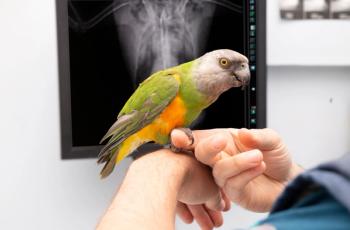
Earlier Play Leads to More Confident Puppies
What is the right age to start puppy socialization? According to a new study, the earlier the better.
The importance of canine socialization has been recognized
Published in
By combining existing nest socialization theories with young puppy developmental stages, the researchers created a new program designed to:
- Provide a highly effective socialization experience
- Be quick and easy to complete
- Utilize low-cost materials
Study Design
The investigators tested 6 litters raised under standardized conditions that were all part of the Guide Dogs for the Blind breeding program. Half the puppies in each litter received extra socialization, and the other half received only the standard program. Extra socialization involved interacting with people (eg, stroking, light brushing) and the environment (eg, outdoor surfaces) as well as visual, auditory, and tactile stimulation (eg, making a cell phone ring near the puppy).
RELATED:
- The Keys to Kitten Socialization
- Periods of Pet Socialization
The extra socialization occurred 5 days per week during the first 6 weeks of life. During the first week, each puppy was given 5 minutes of socialization per day, which built up to about 15 minutes per puppy per day during the final weeks.
Results
All puppies were assessed by study investigators at age 6 weeks, and their handlers answered a behavior questionnaire at 8 months of age. The results? The pups that got extra socialization received better scores at 6 weeks than the puppies that didn’t. Puppies with the extra socialization were also less likely to have separation-related behaviors or general anxiety, be distracted, or have body sensitivity at age 8 months. There was no difference in trainability or energy level between groups.
“The additional age-specific stimulation received by puppies given the extra socialization during this study provided increased physical contact, mental challenges, and extensive positive interaction with people away from the litter,” wrote the study authors. “These stimuli could be considered mild stressors and may help explain the reduced anxiety and distraction related behavior observed in the eight-month handler questionnaire.”
Implications
As the first socialization program tailored to the developmental stage of puppies from birth to 6 weeks of age, these significant results can be helpful for working dog organizations, pet dog breeders, and animal shelters.
"Dogs who do not receive this kind of socialization as puppies can grow up to be anxious and scared,” said Helen Vaterlaws-Whiteside, MA (Oxon), PhD, from Guide Dogs National Breeding Centre in Warwickshire, United Kingdom and lead author of the study. “Therefore, positive early life experiences are critical in helping puppies grow up to be confident, content companions.”
Newsletter
From exam room tips to practice management insights, get trusted veterinary news delivered straight to your inbox—subscribe to dvm360.




